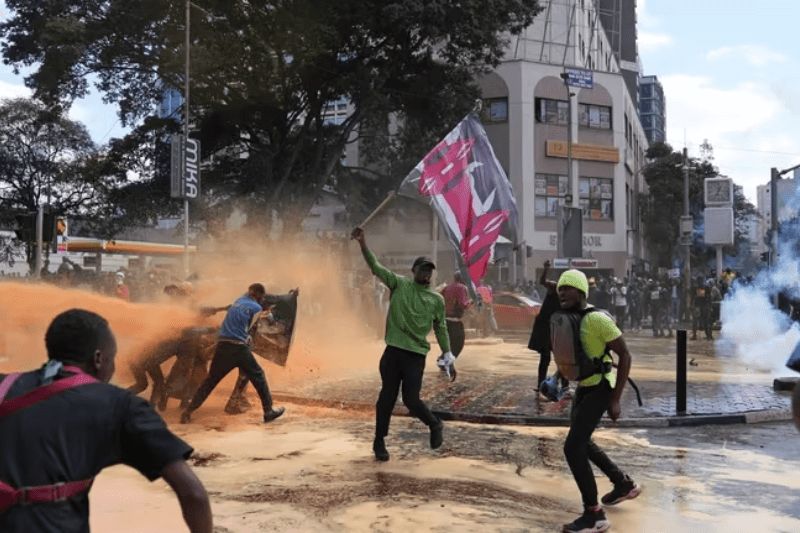Following the vote on a controversial finance measure, violence broke out all over Kenya causing notable casualties and property damage. While President William Ruto visited the country pledging to make use of all available resources to prevent future events of this like, Defense Minister Aden Duale sent the military into action due to the chaos.
“Today’s events represent a turning point in our reaction to serious challenges to national security. In his national address, President Ruto reassured the country that the administration is using all available resources to guarantee that such a condition of affairs would not reoccur, at whatever cost.”
During the upheaval, protesters tried to attack the State House in Nakuru and set ruling party offices ablaze in Embu. According to Kenya Law Society President Faith Odhiambo, who thought to be police officers had “abducted fifty Kenyans, including her personal assistant.” Many of them missing, according to civil society organizations, had been vocal protestors seized from homes, businesses, and public areas before Tuesday’s demonstrations.
Police authorities were not readily available for comments. Moses Wetangula, the speaker of Parliament, instructed the police inspector general to furnish details on the location of allegedly kidnapped persons.
President Ruto underlined in his speech the need of a structure to enable communication, especially among the young people. “Our national conversations on any subject must be conducted in a manner that respects and honors the basic values upon which our nation is established: constitutionalism, the rule of law, and respect of institutions,” he stated. The president has two weeks to formally sign the finance measure into law.
Keep Reading
The African Union Commission’s chairperson advised national players to have positive communication. Though several tax plans were eliminated from the measure last week, discontent over the high cost of living still permeates society.
Major regional hub Nairobi, site of a sizable UN complex, has seen sharpening of economic inequalities that feed long-standing resentment over state corruption. The public’s complaints have been exacerbated last year’s finance bill, which increased the VAT on petroleum items from 8% to 16% and imposed a 1.5% home tax on gross income for salaried workers.
The present turbulence emphasizes how urgently communication and sensible policies to solve corruption and economic disparities are needed. Restoring peace and stability in Kenya depends critically on the government’s desire to respect constitutional ideals and the rule of law.
With Kenya negotiating these difficult circumstances, hope is that open communication and significant reforms will open the path for a more fair and stable future.

